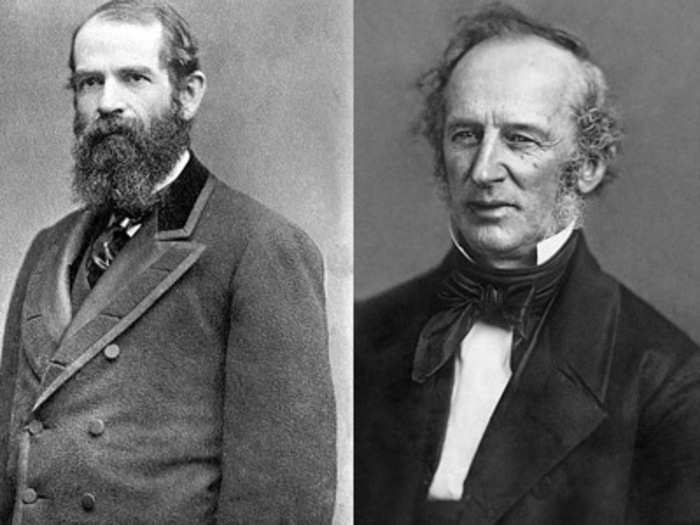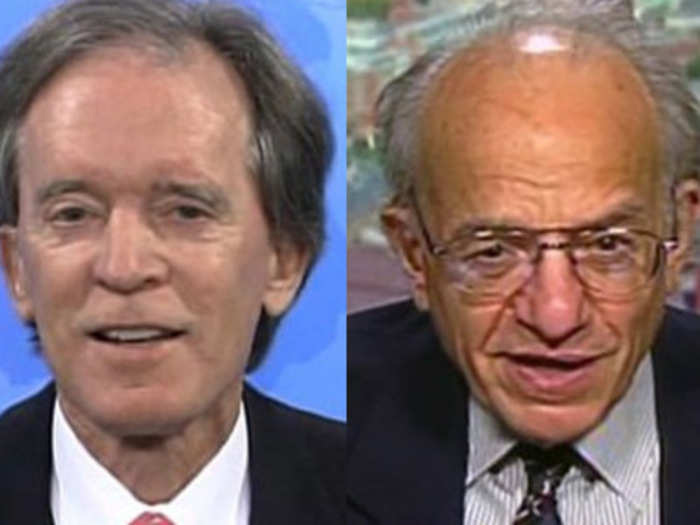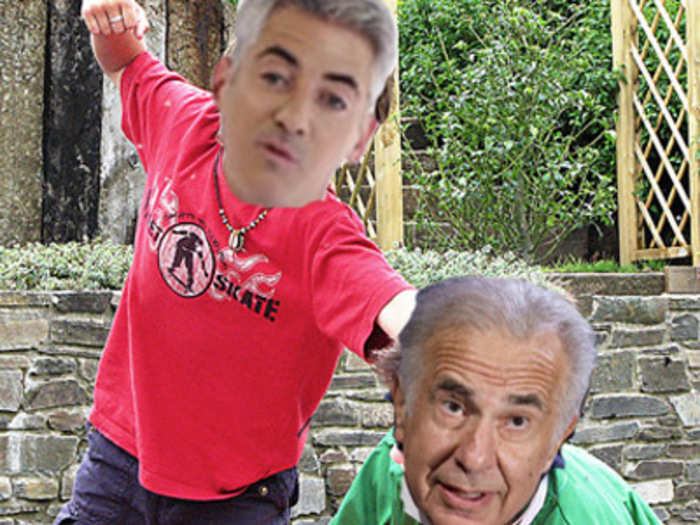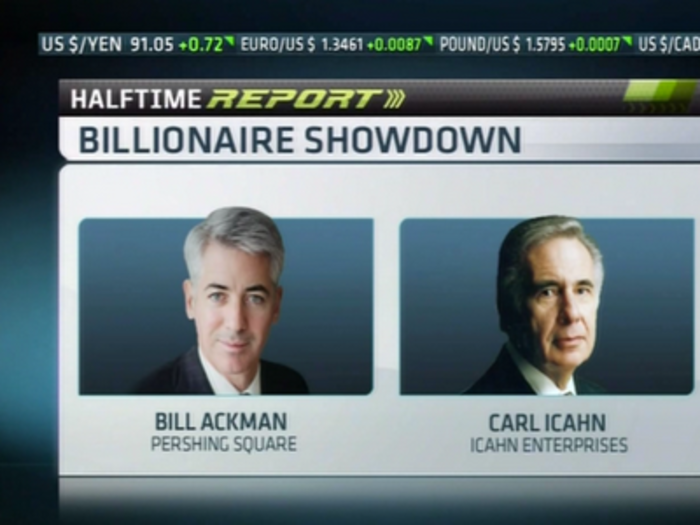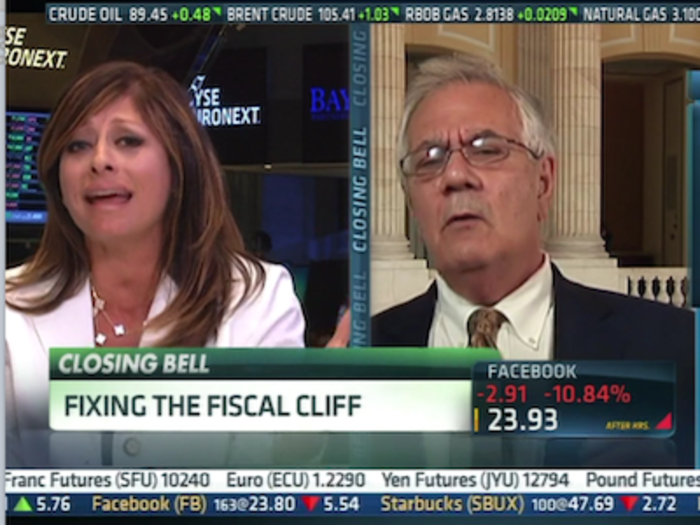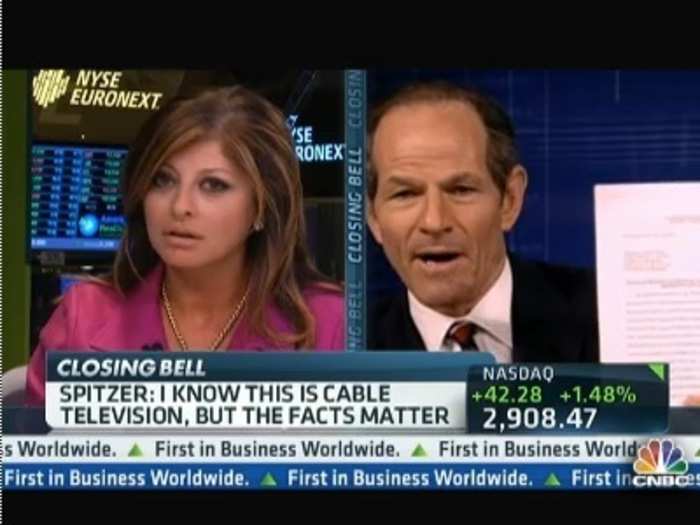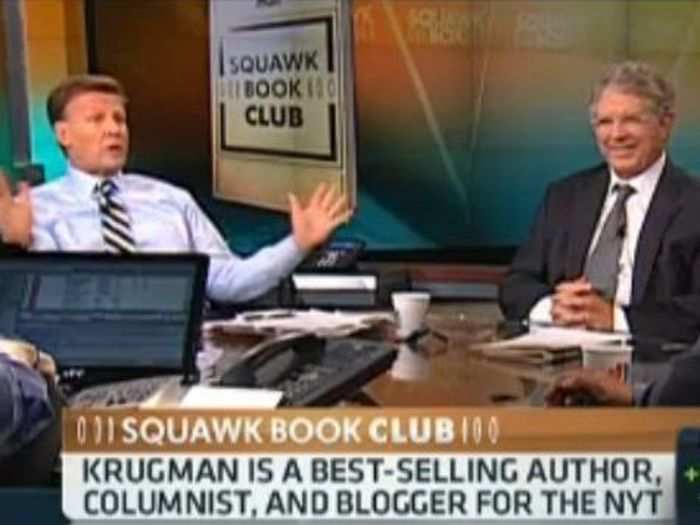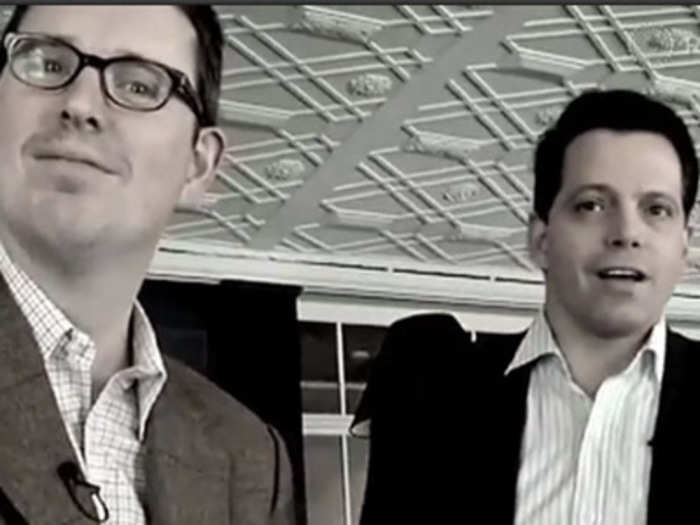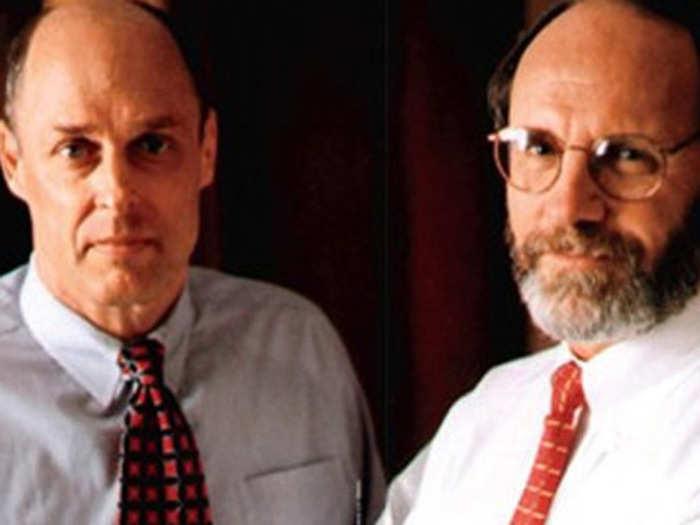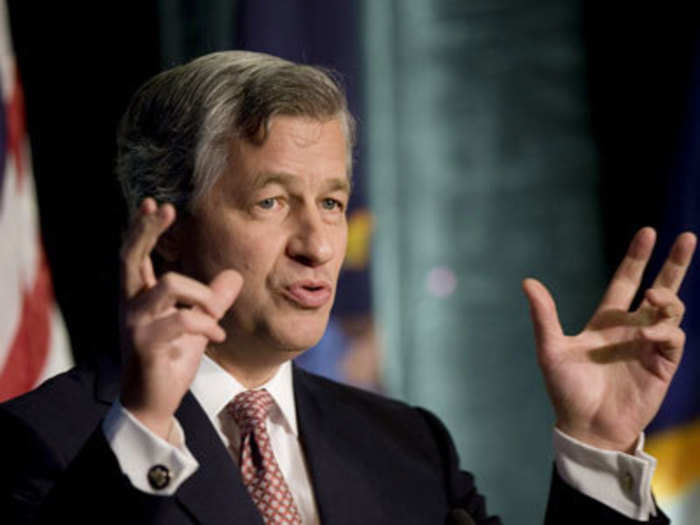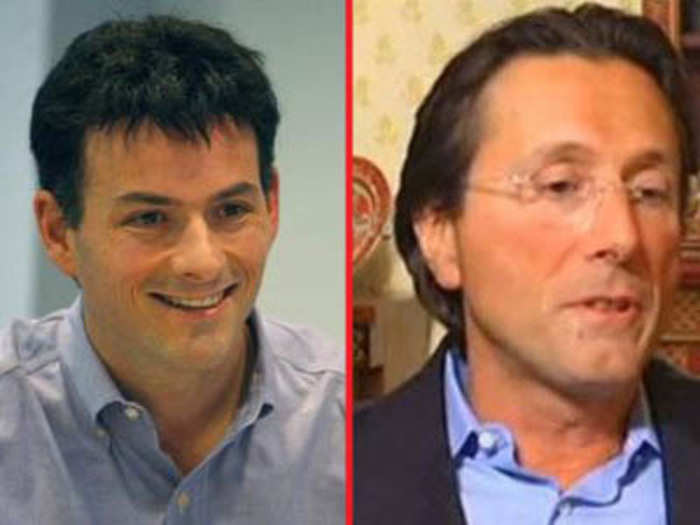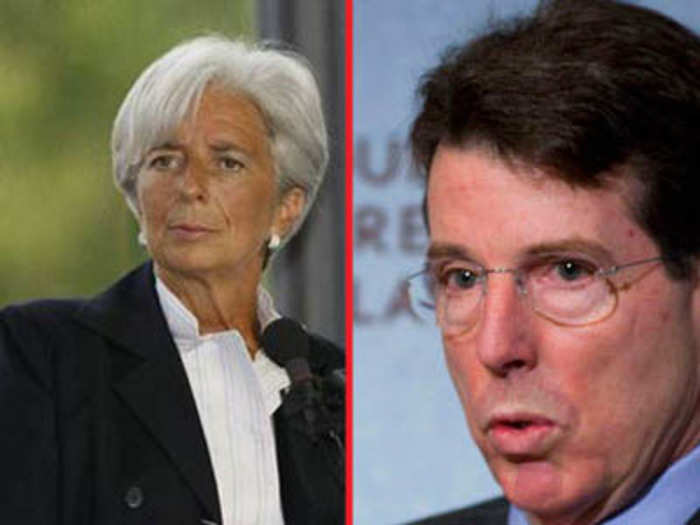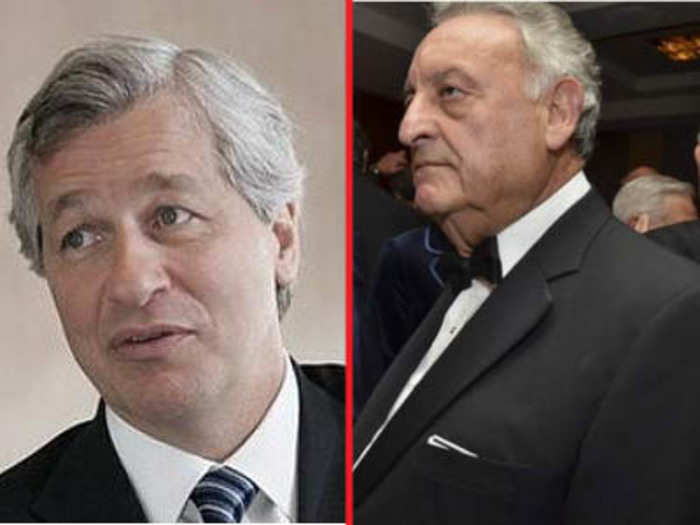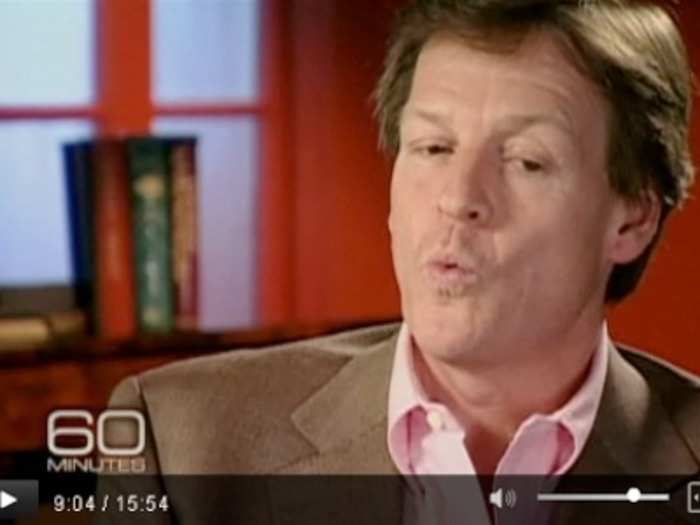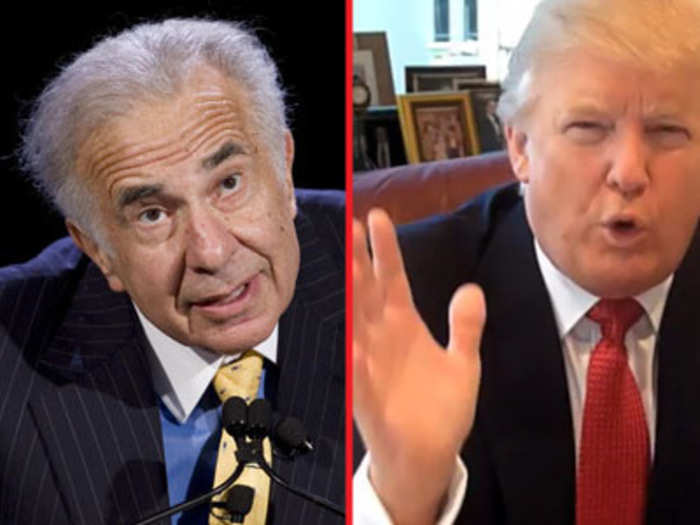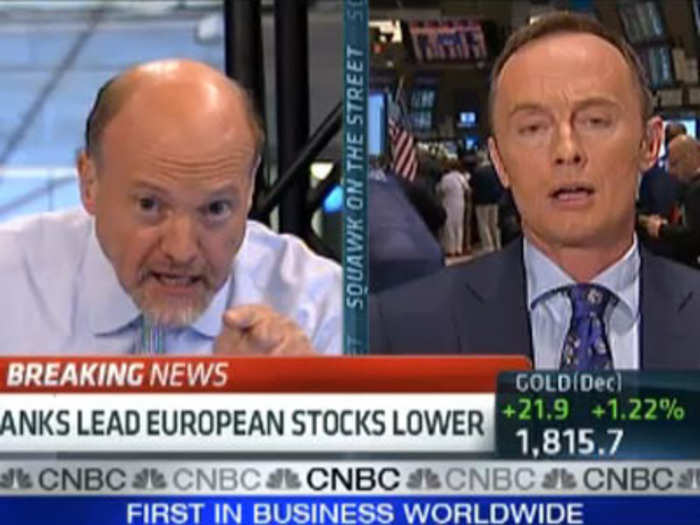...I just did Squawk Box — allegedly about my book, but we never got there. Instead it was one zombie idea after another — Europe is collapsing because of big government, health care is terribly rationed in France, we can save lots of money by denying Medicare to billionaires, on and on.
Among other things, people getting their news from sources like that are probably getting terrible advice about any kind of investment that depends on macroeconomics. But it’s amazing just how skewed the policy views are too....

